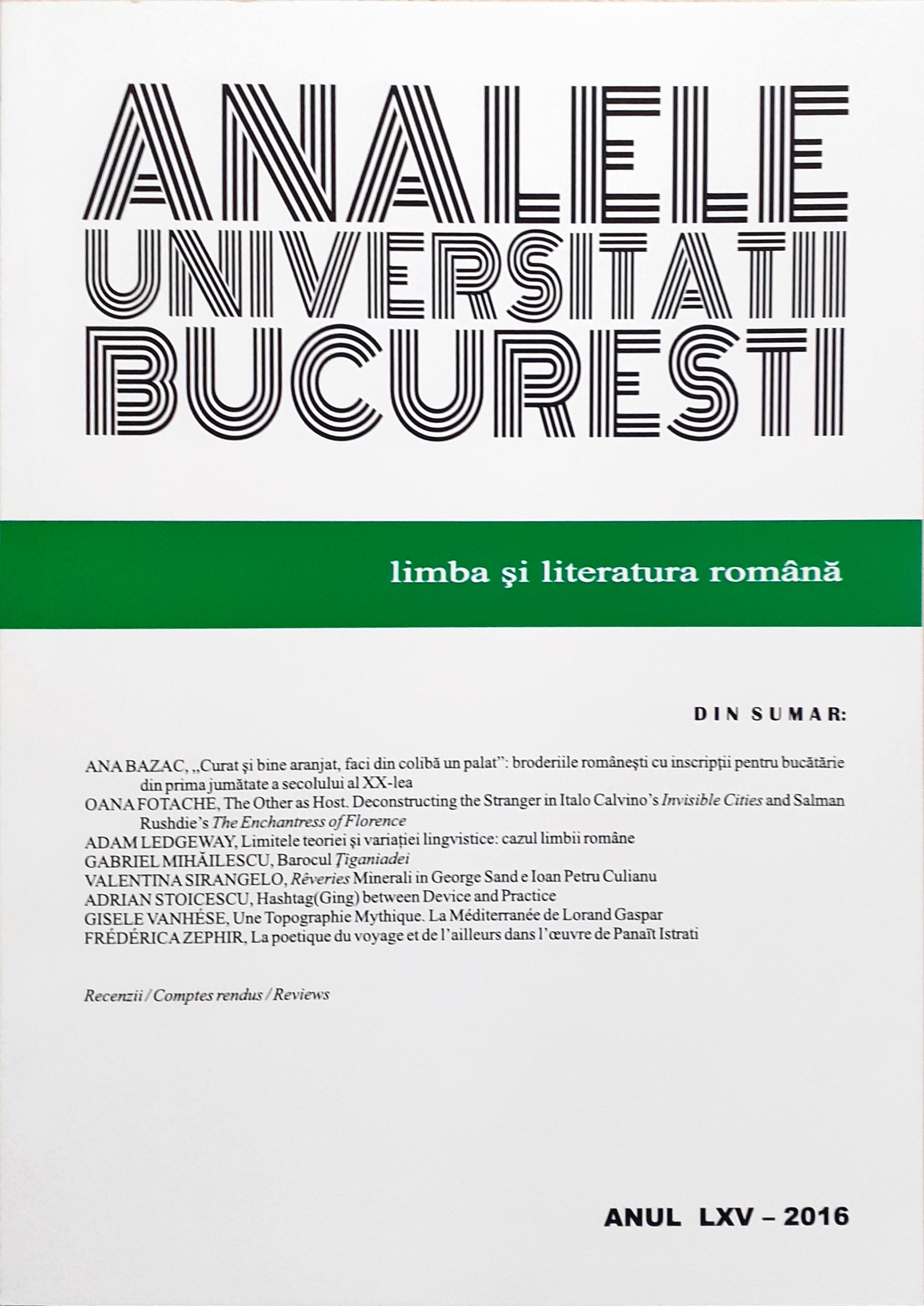The Other as Host. Deconstructing the Stranger in Italo Calvino’s Invisible cities and Salman Rushdie’s The Enchantress of Florence
The Other as Host. Deconstructing the Stranger in Italo Calvino’s Invisible cities and Salman Rushdie’s The Enchantress of Florence
Author(s): Oana Fotache DubălaruSubject(s): Comparative Study of Literature
Published by: Editura Universităţii din Bucureşti
Keywords: Identity; travel; intertextuality; representation; deconstruction;
Summary/Abstract: This paper attempts a comparative analysis of two postmodern novels that might be read as instances of highly sophisticated, meta-literary writing, were they not also very significant and relevant for a contemporary problematics of encountering the Other. Both Italo Calvino’s Invisible Cities (1972) and Salman Rushdie’s The Enchantress of Florence (2008) rework the literary myth of Marco Polo’s travels (Il Milione, probably 1299); Calvino’s novel is also alluded to by Rushdie. Besides the exotic setting and the Oriental storytelling frame, the figures of the Stranger and his ‘Other’ are constructed in a modern (and ambiguous) manner in both novels. Although, at a certain level, these narratives belong to the genre of historical novels, their close reading of the past involves an even closer look at the present. The issues of intercultural exchange, of tolerance, of moral responsibility, become central to the two novels that develop a challenging representation of identity. The intertextual relationships between Polo’s travelogue and the later novels also thematize the motifs of stranger and host in a complex and fascinating structure. The analytical methodology employs both theoretical studies on identity in the context of travel, and critical essays on the respective novels.
Journal: Analele Universităţii Bucureşti. Limba şi literatura română
- Issue Year: LXV/2016
- Issue No: 65
- Page Range: 25-32
- Page Count: 8
- Language: English

